 The EPC’s Complex Systems Toolkit is supported by Quanser.
The EPC’s Complex Systems Toolkit is supported by Quanser.
We would like to thank everyone involved in the development of the Complex Systems Toolkit.
If you would like to add or update your bio, please contact Wendy Attwell.
(Working Group Co-Chair 2025-27) (Working Group Co-Chair 2025-27) Before taking on the role of director, Peter was responsible for managing the Academic Applications team, and the development of several notable ground-breaking products focused on diverse markets from robotics and mechatronics, to educational platforms and tools. Rory Adams (Working Group 2025) Dr Rory Adams leads the UK Customer Success Engineering team at MathWorks, where he partners with academics enabling them to achieve their research and teaching goals, by taking advantage of the full capabilities of MATLAB and Simulink. Rory has extensive experience, as a former Application Engineer and Consultant at MathWorks, helping commercial customers solve their complex engineering challenges, and adopting model-based design practices to better deliver complex systems. He brings a wealth of expertise and a deep understanding of industry and academic needs to his current role. Adam Adgar (Working Group 2025) Adam is Head of Department (Engineering) at Teesside University. Since the establishment of the School of Computing, Engineering and Digital Technologies in 2019, he has led the portfolio of engineering and construction courses across undergraduate, postgraduate, apprenticeship and online provision. He is currently focussed on exploring the art of the possible in innovative programme design and delivery by leveraging the power of research, business engagement, the professions and student partnerships. Wendy Attwell Wendy Attwell is a Research and Editorial Executive at the Engineering Professors’ Council, working primarily on the development of the EPC’s Toolkits. Her role currently focuses on the launch and development of the EPC’s Complex Systems Toolkit, and she has previously worked on the development of the Engineering Ethics Toolkit, to which she has also independently contributed a case study. Contact Wendy at w.attwell@epc.ac.uk Richard Beasley (Working Group 2025) Richard Beasley spent 38 years working as an engineer for Rolls-Royce – 20 years of which leading the embedding of Systems Engineering and as a specialist Systems Engineer. Heavily involved in the SE professional society INCOSE (UK chapter President 2024-2016, International Director of Services 2022-2024), lead author of the INCOSE Systems Engineering Competency Framework, author of many papers and now Chair of the Working Group on Embedding Systems Engineering). He was a visiting Fellow at the Bristol University Systems Centre (2006-2018). Recently retired from Rolls-Royce and working on his own business, RB Systems, he remains a passionate advocate of the Systems Approach, and in particular focused on how Systems Engineering is done, and so very focused on the competency and skills of all involved in the practice of Systems Engineering. As well as being a member of the Working Group, Richard has also contributed to the Complex Systems Toolkit as an author. Dr. Neil Carhart (Working Group 2025) Neil is a Senior Lecturer in Infrastructure Systems within the School of Civil, Aerospace and Design Engineering at the University of Bristol. His research investigates the planning and management of built infrastructure as a complex socio-technical system, with a focus on resilience, safety and sustainability. This has looked at modelling the complex network of interactions through which infrastructure systems facilitate valued societal outcomes with the Infrastructure and Projects Authority (IPA) and analysing emergent failure modes with the National Infrastructure Commission (NIC). He is also the systems modelling lead on the UKPRP funded Tackling the Root causes Upstream of Unhealthy Urban Development (TRUUD) project. As well as being a member of the Working Group, Neil has also contributed to the Complex Systems Toolkit as an author. Dr. Francesco Ciriello (Working Group 2025) Dr. Francesco Ciriello is an Academic Education Pathway Lecturer in Engineering at King’s College London, where he teaches interdisciplinary design and mechatronics. He is also Director of Undergraduate Student Experience, Departmental lead for Project-based Learning & Design for General & Electrical Engineering, and King’s Academy Fellow in Project-based Learning. Francesco has broad expertise in Simulation and Engineering Design, with application to Robotics & Control systems, Fluid dynamics and Manufacturing. He previously worked in the Education Group at MathWorks and provided consultancy services to educators and researchers on software development with MATLAB & Simulink. He also holds a PhD in Engineering from the University of Cambridge for his work in experimental fluid dynamics and a MEng in Civil Engineering from Imperial College London. Francesco is also a visiting lecturer for continued professional development courses at the University of Oxford, where he teaches short courses on Artificial Intelligence for Cloud & Edge and Digital Twins: Enhancing Model-based design with Augmented, Virtual and Mixed Reality. As well as being a member of the Working Group, Francesco has also contributed to the Complex Systems Toolkit as an author. Rowan Conway (Working Group 2025) Rowan Conway is Faculty lead for the Transformation by Design module on the MPA in Innovation, Public Policy and Public Value at UCL Institute for Innovation and Public Purpose. Previously she led the Mission Oriented Innovation Network (MOIN) at UCL IIPP. Rowan is also Deputy Director of the Just Transition Finance Lab at the LSE and a practicing strategic designer focusing on Sustainable Futures. Prior to joining UCL, Rowan was Director of Innovation at the Royal Society of Arts (RSA) where she set up the RSA Lab, an experimental space using design methods to explore, prototype and test research insights and policy ideas with government agencies, NGOs, academic partners, NHS Trusts, businesses and social enterprises. Between 2005-11 she was part of the Design Team for London 2012 Olympic Park. Chris Hamlin (Working Group 2025-27) Chris is co-founder and lead advisor at HancockHamlin, a research-based, enablement, training and coaching company that helps people and organisations operate effectively in complex and emergent environments. Originally a process control engineer, Chris’ more recent work has been in technical and business consultancy, focusing on development and sustainability. He is a qualified Co-Active coach with a passion for helping technical and scientific leaders to broaden their perspectives and find the fulfilment they strive for. Chris is also a Visiting Professor at the University of Huddersfield. Dr. Amina Hamoud (Working Group 2025-27) Dr. Amina Hamoud is a Lecturer in Systems Engineering at the University of the West of England and teaches a variety of subjects relating to systems engineering, systems thinking, control and automation, and intelligent transport systems across different programmes. She co-leads on Bristol Robotics Laboratory Connected & Autonomous Vehicles research group, where she leads several projects around AI and transport. She is also the School of Engineering EDI co-lead. Prior to joining UWE Bristol, she worked as a Research Engineer for an Automotive Consultancy where her focus was on developing safe Autonomous Vehicles and Intelligent Transport Systems, whilst completing her PHD at Loughborough University in the same area. She also holds a Bachelor’s Degree (BSc) in Maths and Computer Science, an MSc in Telecommunications and Networks Systems, and an MRes in Image Processing and Computer Vision. She has worked in technology and software for years prior across different countries. Dr. Mohammad Hassannezhad (Working Group 2025-27) Mohammad Hassannezhad is an Assistant Professor (UK Lecturer) in Systems Engineering within the UCL Centre for Systems Engineering at Mullard Space Science Laboratory, where he co-leads the Systems Engineering MSc Degree Apprenticeship programme with various industries, contributes to teaching Systems Thinking and Engineering Management and Systems Design, and conducts research on aspects of Sustainable Systems Engineering, Socio-Technical Systems Design, and Systems Engineering Edutainment. He has a pragmatic multidisciplinary mindset with over 15 years of experience in designing, analysing, and managing complex systems through taking various engineering, consultancy, and academic roles across sectors, spanning Agriculture, Automotive, Aerospace, Telecom, Healthcare, and Public Policy at multiple levels of the UK government. He has a PhD in Engineering Systems Design from Politenico di Torino (Italy) and before joining UCL, worked for Queen Mary University of London (as a Lecturer), University of Sheffield (as SIPHER Systems Mapping Lead), and University of Cambridge (as an Industrial Research Associate funded by Rolls-Royce and BT). He is a Certified Systems Engineering Professional (CSEP) by INCOSE and a Fellow of the Higher Education Academy. As well as being a member of the Working Group, Dr. Hassannezhad is also a content contributor for the Complex Systems Toolkit. Sarah Jayne Hitt, Ph.D. SFHEA specialises in the integration of the arts, humanities and social sciences within engineering education, especially focussing on ethics and communication. She has served as project manager for the EPC’s Ethics and Sustainability Toolkit initiatives, is Transferable Skills Lead for the Centre for Advanced Timber Technology at NMITE and is Visiting Professor in the School of Computing, Engineering, and the Built Environment at Edinburgh Napier University. She has led national and international workshops on interdisciplinary learning and teaching and worked with academic and industry partners on various engineering education initiatives. She has recent publications in the International Journal of Engineering Education and The Journal of Problem-Based Learning in Higher Education. Tim Kerby (Working Group 2025) Tim is the Founder and CEO of Edinburgh Systems, a leading Scottish consultancy dedicated to advancing Systems Engineering and Systems Thinking practices across multiple sectors. A Chartered Engineer (CEng), Fellow of the Institution of Engineering and Technology (FIET), and Certified Systems Engineering Professional (CSEP) with INCOSE, Tim has over 20 years of experience in complex systems design, optimisation and understanding. He holds a Royal Academy of Engineering Visiting Professorship in Systems Engineering at Heriot-Watt University and teaches at the University of Edinburgh including leading the Systems Thinking for Health and Social Care programme. Recent pioneering work includes the Zero Emissions Flight Infrastructure (ZEFI) programme, which has shaped the roadmap for UK airports to achieve net-zero emissions through hydrogen and electric aviation. He is a Co-Investigator and industrial partner on the Systems Engineering and Thinking to Transform Transitions programme with the University of Edinburgh which aims to improve outcomes for older people with multiple long term medical conditions. Tim’s leadership continues to influence national policies and industry standards, driving innovation that benefits both industry and society. Lampros Litos (Working Group 2025) Lampros graduated from the School of Chemical Engineering (University of Patras) with a specialisation in Materials Technology and followed on with MSc in Biotechnology (Ulster University) before starting to work in a leading Greek agri-food company in Quality and R&D roles. Whilst in industry he was awarded an MBA from the University of Ioannina and in 2012 he was recruited as a doctoral researcher at EPSRC’s Centre for Innovative Manufacturing in Industrial Sustainability (CIMIS), based at Cambridge University. Lampros went back to manufacturing and business management roles in 2015 and developed additional research interests in innovation management, pre-competitiveness and knowledge exchange. Lampros joined Cranfield University in 2022 as Lecturer in Sustainable Manufacturing Operations. Lampros is a manufacturing research and sustainability expert with a special focus on capability development in managing energy, resources, and waste. As well as being a member of the Working Group, Lampros is also a content contributor for the Complex Systems Toolkit. Wei Liu (Working Group 2025) Professor Wei Liu is a Professor of Design Engineering and Innovation at King’s College London, with extensive teaching, research and leadership experience across design, engineering and management. Wei completed her PhD at the University of Cambridge and was Visiting Fellow at Harvard University where she explored design education in interdisciplinary fields. Before joining King’s, Wei conducted academic research and teaching in the UK, US and China. She has won many Academic Awards for Teaching Excellency and is recognised as a Senior Fellow of the Higher Education Academy (SFHEA) in the UK. In 2021, she was elected Director and Executive Board Member of Design in Engineering, Education Division, American Society for Engineering Education (ASEE). In 2022, she was the only nominee in the excellency category of Innovation in Teaching to represent the faculty. In 2024, she was the winner of the King’s Education Award across the University. The students under her supervision have won top global recognition, e.g. Overall Winner of DMI Essay Competition, Grand Prize Winner of international Tech Entrepreneurship Competition, NYJ Top 30 Women Leaders, and Schwarzman Scholarship. Wei has rich experience of conducting interdisciplinary research and obtained over £6.3 million research grants from EPSRC, NIHR and other prestigious funding bodies. Her research outputs have successfully filed two invention patents, and have been published in the leading Design, Advanced Manufacturing and Innovation Management journals such as Design Science, Rapid Prototyping Journal, 3D printing and Additive Manufacturing, Sustainable Production and Consumption, California Management Review, Journal of Engineering and Technology Management, JMIR Aging, and R&D Management. Her paper has been recognised as one of the Top Cited and Most Downloaded papers of the year by Wiley. She won the Best Paper Award from the Product Development and Management Association (PDMA) Conference and the British Academy of Management (BAM) Conference. She has been awarded the N.E.J. Stevenson Award for Outstanding Contribution to Research by the Design and Technology Association. Wei also has professional design experience in world-leading business and design consultancies (BCG, IBM and TEAMS Design), where she led the design and development of consumer goods, industrial products and digital products for global top brands. Many of her designed products have been produced and sold in the market. She is a Fellow of the Royal Society for the Encouragement of Arts, Manufactures and Commerce (FRSA). Wei is co-editor of The Design Journal, the official journal of the European Academy of Design (EAD) and one of the top journals in the global design research area. She is a full member of EPSRC Review College and an international reviewer for the Austrian Science Fund. She has also served as external examiner and judge panel member for different international events, such as degree programme review, international design competitions and academic promotion. Moreover, she has been the session chair, keynote speaker, conference committee member, and scientific review committee member for many international conferences. Claire Lucas (Working Group 2025) Claire is a Professor of Engineering Teaching and Learning and the Deputy Head of Department (Education) in the Department of Engineering at King’s College London. Since the department’s relaunch in 2020, she has led engineering education research and implementation initiatives aimed at transforming and disrupting engineering pedagogy. Her research focuses on defining and improving the engineering profession, advocating for a shift from traditional ways of knowing and doing to new ways of thinking and becoming, for which she has established an innovative ‘create-first’ pedagogy. Claire is a strong advocate for new academic structures and models that can drive new curricular topologies – recognising the impact of traditional silos on the design of engineering education. She leads a diverse team of academics that integrate a variety of disciplinary and cultural backgrounds and experiences. Claire is a fellow of the IMechE and a Senior Fellow in HE. She was the deputy chair of the 2022 QAA Subject Benchmark Statement and is an experienced academic accreditor for the IET, as well as a member of their Academic Accreditation Committee. In 2020, Claire was named one of the top 50 women in Engineering for her work in Engineering Education and she was awarded the Women’s Engineering Society Prize at the IET’s Young Women Engineer of the Year in 2019. Mara-Tafadzwa Makoni (Working Group 2025-27) Mara-Tafadzwa Makoni is an experienced, analytical and innovative Systems Engineering Consultant with a proven record of stakeholder management, strategic planning, project delivery and data interpretation. She is a team player who combines management, technical and social skills in designing and executing complex projects to successful completion. Mara has provided specialist advice on transformation, risk governance and operational requirements, working with multi-disciplinary teams in the safety risk assessment of operational design, from feasibility to detailed design, construction, and monitoring. Mara is particularly skilled at relationship building across organisations, she is able to identify and strategically align stakeholder interests to create shared advantage. She has a keen interest in leveraging her in-depth understanding of systems thinking and sustainable development. Mara-Tafadzwa Makoni is also a highly experienced and award-winning equity, diversity and inclusion (EDI) subject matter expert with more than ten years’ experience in conceptualising, developing and implementing private and public sector initiatives and community projects. Andrew Pemberton (Working Group 2025-27) Andrew Pemberton is a prominent figure in the field of systems engineering. He holds a key position at Thales, a global technology leader in the aerospace, transportation, and defence sectors. At Thales, he has been instrumental in advancing the adoption of Architecting and Model-Based Systems Engineering (MBSE), methodologies that enhance the efficiency and effectiveness of complex system development. In addition to his role at Thales, Andrew is actively involved with the International Council on Systems Engineering (INCOSE) UK. He is the serving President of INCOSE UK, where he has played a pivotal role in promoting systems engineering practices and fostering collaboration between industry and academia. Andrew’s work focuses on addressing the challenges of complexity, communication, and understanding within systems engineering. His efforts in MBSE have been crucial in improving the integration and performance of systems across various domains. He is also known for his contributions to workshops and conferences, where he shares his expertise and insights on digital transformation and sustainability in systems engineering. Andrew Pemberton’s dedication to advancing systems engineering has made him a respected leader in the field, continually driving innovation and excellence. Dr. Manoj Ravi (Working Group 2025-27) Dr. Manoj Ravi is a Lecturer in Chemical Engineering and a Fellow of Advance HE (FHEA). Dr. Ravi leads several pedagogic research projects spanning sustainability, artificial intelligence, authentic assessments and curriculum design. He has been an advocate of integrating systems thinking competencies in the taught curriculum and has presented related findings at conferences and in journal articles (‘Identifying opportunities to promote systems thinking in catalysis education’, Journal of Chemical Education, 2021; ‘Spectroscopic Methods for Pollution Analysis – Course Development and Delivery Using the Integrated Course Design Framework’, Journal of Chemical Education 2023). In these endeavours, Dr. Ravi has explored embedding systems thinking abilities through the lens of constructive alignment – exploring its integration into learning outcomes, design of participatory learning activities, and assessment design. Dr. Ravi has previously contributed to EPC’s Sustainability Toolkit, both as an author and a reviewer. As well as being a member of the Working Group, Dr. Ravi is also a content contributor for the Complex Systems Toolkit. Johnny Rich As well as his role with the EPC, Johnny Rich is well known across the higher education sector as a high-profile commentator on policy issues as well as the chief executive of student advice and outreach organisation Push, as a consultant working in education and careers, and as an author.Before joining the EPC, Johnny has already worked on many issues of concern to our members. Over the past 25 years, he led Push’s research – such as on drop-out rates and student debt – which has had direct impacts on policy. Johnny’s thought leadership, such as his papers for a graduate levy and a national access fund (2018) and on employability (2015) for the Higher Education Policy Institute, have been influential throughout the sector. Policy issues are also a significant part of his consultancy work, along with communications. His clients have included the European Commission, HEFCE, U-Multirank, as well as many universities, recruiters and charities. He’s a regular speaker at conferences, awards and in schools. In 2013, his novel A Human Script was published. Dr. Chelsea Salinas (Working Group 2025-27) Dr. Chelsea Salinas is a Teaching Professor at the Colorado School of Mines (USA) in the Engineering, Design & Society Department. She is an experienced instructor with a demonstrated history of working in the higher education industry, skilled in Design Engineering, Systems Modelling, Inclusive Design, and Curricula and Programme Development. Dr. Salinas earned a BS in Chemical Engineering from the University of Texas at Austin and her MS and PhD in Chemical and Biological Engineering from the University of Colorado at Boulder. She is passionate about design for people with disabilities, creating an engaging classroom, using active learning techniques and integrating user-centred design approaches to create a targeted and meaningful experience for her students. Dr. Rhythima Shinde (Working Group 2025-27) Dr. Rhythima Shinde is a Senior Sustainability Advisor at KLH Sustainability and former Assistant Professor at TEDI-London. With a PhD in environmental science, experience across the UK, Switzerland, the Netherlands, and India, her work spans life cycle assessment, low-carbon design, and sustainable education. She brings a multidisciplinary background in environmental policy, data science, and engineering to drive impact in the built environment and renewable energy systems. Rhythima is the Content Review Coordinator for the EPC’s Sustainability Toolkit. As well as being a member of the Working Group, Rhythima is also a content contributor for the Complex Systems Toolkit. Paul Sweetman (Working Group 2025-27) From an early age Paul has been involved in educating and working with young people. Upon leaving Cambridge University with a degree in engineering, he trained as a secondary school physics teacher and worked for eight years in schools in London and Merseyside. In 1998, he led a team of 26 young people from a diverse range of backgrounds across Merseyside to construct two school buildings in the north of Namibia, Africa, which developed his leadership, youth working, communication and engineering skills in a challenging environment. Upon his return to the UK and working voluntarily with a handful of like-minded individuals, he made a successful application to the National Lottery Charities Board (NLCB) setting up a national volunteering scheme for young people aged 18-30 to partake in community action projects, including education and construction which lasted 3 years. Inspired by the building work in Africa and with the NLCB, he commenced work in the construction industry as an engineer and site manager/ project manager. Over a period of 24 years, he has led teams to complete construction and design of some of Liverpool’s landmark buildings in an engineering capacity. These included No 1 Mann Island, on the historic waterfront and the new Aintree Hospital Trauma Centre. He also worked to deliver the refurbishment of the school of engineering at Liverpool University. Paul currently works for an engineering consultancy in the northwest of England and offers professional services to a wide range of clients in various sectors. He is the Royal Academy Visiting Professor in Civil and Environmental Engineering at the University of Liverpool. Dr. Natalie Wint (Working Group 2025-27) Natalie Wint is a lecturer within the Department for Science, Technology, Engineering and Public Policy (STEaPP) at University College London (UCL). She has experience in transdisciplinary teaching, quality assurance and curriculum design/ review and research into professional skills and the differences between engineering practice and education. As well as being a member of the Working Group, Dr. Wint is also a content contributor for the Complex Systems Toolkit. Nafiseh M. Aftah, PhD Candidate Nafiseh Mohammadianaftah is a third-year Ph.D. student in the mechanical engineering department at the University of Kansas. Her research focuses on understanding the etiology of injury in the lumbar spine. She is working with physical therapists to develop novel devices and computational models to assist in injury prevention and rehabilitation. Mohammed Alabdullatif, PhD Candidate Mohammed is a PhD candidate in the Department of Mechanical Engineering at University College London (UCL). His research focuses on heat transfer applications, with particular emphasis on advanced thermal management systems. His work involves the development and experimental investigation of novel phase change material-based nanosuspensions and their integration into efficient cooling technologies. Dr. George Amarantidis Dr. George Amarantidis is a Senior Community Developer Advocate at MathWorks UK, working at the intersection of model-based design, applied control systems, AI, and digital twins. With a PhD in Control Systems & Artificial Intelligence from the University of Birmingham and an MEng in Electronic Engineering from Loughborough University. He collaborates closely with universities, researchers, and industry partners across the UK to accelerate innovation using MATLAB and Simulink, supporting applications ranging from autonomous systems and predictive maintenance to biomedical engineering and data-driven modelling. A passionate advocate for reproducible research and effective engineering communication, he regularly leads workshops, delivers invited talks, and helps shape the next generation of engineers. George is also deeply involved in the UK control and engineering education ecosystem, supporting initiatives such as Special Interest Groups, academic–industry partnerships, and national research networks, while actively contributing to conversations around the future of engineering skills, AI in safety-critical systems, and digital transformation. Dr. James C Atuonwu, PhD, MIET, FHEA James Atuonwu holds a PhD in Energy-Efficient Processing from Wageningen University (Netherlands), an MSc in Process Systems Engineering from Cranfield University (UK), and a BEng in Electrical & Electronic Engineering from the University of Benin (Nigeria). He has taught engineering modules across universities in Nigeria, the Netherlands, and the UK, and has contributed to several research projects in collaboration with industry partners. James is a certified Lean Six Sigma Black Belt Specialist, with a professional focus on energy efficiency, process integration, and decarbonisation through electrification—particularly within the food processing sector. His industrial experience also spans the non-food FMCG industry. He currently serves as an Assistant Professor at the New Model Institute for Technology and Engineering (NMITE), where he teaches modules related to Process, Manufacturing, and Energy Engineering. Dr. Zareena Gani PhD, CEng, MIMechE, SFHEA, PMP Dr. Zareena Gani is an Associate Professor in the Mechanical Engineering Department at UCL. She is a renowned academic leader in Engineering Education, holding a PhD from McMaster University, Canada, and an M.Eng. from the National University of Singapore. Dr. Gani is a Chartered Engineer and Senior Fellow of the Higher Education Academy (UK). She co-developed a new MSc Program in Future Manufacturing and Nanoscale Engineering and a module on Precision Manufacturing. Moreover, she leads the department’s committee on Practical Teaching in the UG curriculum, endeavouring to enhance students’ learning experience. Dr. Gani is widely recognised for her pedagogical research, particularly in problem/project-based and experiential learning. With over 25 years of experience in academia and industry, she has worked in various countries, including the UAE, Canada, Singapore, and India, before joining UCL. She actively promotes Equality, Diversity, and Inclusion through STEM education and is dedicated to supporting students from disadvantaged backgrounds. Professor Robert Geyer After working at the University of Liverpool for 10 years, Professor Geyer joined Lancaster University in 2006 and since that time he has been the Head of the Department of Politics, Philosophy and Religion, the Faculty of Arts and Social Sciences Associate Dean for Engagement and Internationalisation, Deputy Dean of the Faculty of Arts and Social Sciences, Lancaster University Academic Director (International) and LU Interim Dean (Internationalisation). Professor Geyer supervises PhD. students in international political economy, European politics, policy and integration, Scandinavian politics, and Complexity and public policy. Dr. Stuart Grey, SFHEA Dr Stuart Grey SFHEA is Senior Lecturer in Engineering Systems Design at the University of Glasgow. After starting a career in nuclear-safety analysis, he completed a PhD in orbital mechanics and developed high-fidelity force models now used on ESA and GPS missions. His current research applies AI to systems-engineering problems and to interactive learning tools that strengthen ethical reasoning. Stuart leads curriculum redesign projects that embed inclusive assessment and complex-systems thinking, and he serves as External Examiner for Aerospace Engineering at the University of Manchester. Milan Liu Milan Liu is a PhD student specialising in sustainable manufacturing and materials recycling at Cranfield University. Dr. Mariam Makramalla, PhD, FRSA Mariam is a graduate of the Faculty of Education at the University of Cambridge and is currently stationed as Assistant Professor at the School of Engineering at New Giza University. She is an experienced educational consultant who has been engaged in a number of projects with Cambridge Partnerships for Education in Europe and the Middle East, including work in the UAE and Qatar. She has worked on curriculum mapping, curriculum reviews and full-scale system reviews. Mariam has a wealth of experience in education including academic teaching roles and academic review. Together with the Engineering Professors’ Council she has been involved in mapping the T levels mathematics curriculum against expectations of different Higher Education stakeholders across the United Kingdom. Dr. Rebecca Margetts Rebecca Margetts is a Principal Lecturer in Mechanical Engineering at Nottingham Trent University. She was a Chartered Engineer in the aerospace and automotive industries prior to returning to academia, where she pursued a PhD in modelling dynamical systems at the University of Bath. For the last twelve years she has lectured Systems and Control to engineering undergraduates. She is an enthusiastic member of the Bond Graph modelling community, and currently applies her research to music technology. Onyekachi Nwafor Onyekachi Nwafor is a systems‐thinking educator and renewable-energy practitioner. As Founder & CEO of KatexPower, he has designed and deployed decentralized solar mini-grids across off-grid communities in Nigeria. He is a Research Affiliate at the Africa Research & Impact Network (ARIN) and Membership Manager – West Africa for the Global Waste Cleaning Network (GWCN). He also co-authored the 2023 REN21 Global Renewable Energy Report and has led workshops on causal-loop mapping and system-dynamics modelling to integrate complex-systems education into engineering curricula worldwide As well as contributing a resource to and reviewing for the EPC’s Complex Systems Toolkit, Onyekachi has also previously contributed to the EPC’s Sustainability and Engineering Ethics Toolkits. Dr. James E. Pickering, PhD, SFHEA, MIET, MInstMC James E. Pickering is a Lecturer in Control Engineering at Aston University, Birmingham, where he is part of the Department of Mechatronics Engineering. James has a strong passion for applied control theory and enjoys tackling industrial challenges. He currently serves as the Programme Director for the Future Vehicle Technologies MSc at Aston University and is a particularly keen advocate for bridging the knowledge gap between control theory and industrial control systems in practice. Dr. Scott Strachan Scott M. Strachan received B.Eng. (Hons.) and Ph.D. degrees in 1995 and 2005 from the University of Strathclyde. Since his appointment within the Institute of Energy and Environment (Inst EE) in 1997, he has conducted numerous research projects with leading UK energy companies, mainly focusing on the areas of plant condition monitoring, asset management, data mining, knowledge management and engineering, and intelligent systems applications for power systems. He has been active in the universal energy access research (SDG7) since 2006. He was a founder of the Electronic and Electrical Engineering (EEE) Department’s staff/student outreach Gambia Solar Project and Tamil Nadu Solar Project; designing and installing off-grid solar PV systems to rural schools and health clinics. He is Co-Director of the Vertically Integrated Project for Sustainable Development programme (winner of the 2019 International Green Gown Award for Student Engagement and 2020 AASHE Award for Campus Sustainability Research). He is also Education for Sustainable Development lead in the University’s Centre for Sustainable Development and Co-Convenor of the ESD Topic Support Network for Learning for Sustainability Scotland, a UN Regional Centre of Expertise. Scott is Associate Dean Learning Enhancement for the Engineering Faculty, leading on the mainstreaming of ESD, EDI and Enterprise and Entrepreneurship in the curriculum. also Chairs the University’s ESD Working Group and Strathclyde Climate Ambassadors’ Networks (StrathCAN), which won the 2022 UK & Ireland Green Gown Award for Student Engagement with Climate Education workshops. He was also previously part of the working group for the EPC’s Sustainability Toolkit. Dr. Strachan is also a reviewer for the Complex Systems Toolkit. Dr. Raja Toqeer CEng, MIET, CMgr, FCMI, FHEA Dr. Raja Toqeer is the academic lead for electrical and electronic engineering theme in the Multidisciplinary Engineering Education department (The Diamond) at the University of Sheffield. He specialises in designing and delivering practical, engaging learning experiences for undergraduate and postgraduate students across the Faculty of Engineering. His technical expertise spans analogue and digital electronics, microcontrollers, control systems, and electrical machines. Dr Toqeer has contributed to several national skills development initiatives in collaboration with the High Value Manufacturing Catapult, where he helped develop competency frameworks in key areas including electrification, batteries and packs, power electronics, motors and drives (PEMD), agri-food technologies, and digital simulation. He has also played a key role in the development of Higher Technical Qualifications (HTQs) for Pearson, helping to shape industry-aligned engineering curricula. In addition to his teaching and curriculum work, he leads large-scale multidisciplinary project weeks involving over 3,000 students each year, where participants collaborate to solve real-world engineering challenges. He also mentors’ engineers and technicians on their path to professional registration with the IET, supporting their development into skilled, work-ready professionals. Dr. Ewa Ura-Bińczyk Dr. Ewa Ura-Bińczyk is a Ph.D. materials engineer with over 15 years of experience as an academic teacher at Warsaw University of Technology. Her main areas of expertise include failure analysis, corrosion monitoring, and materials characterisation, with a strong emphasis on applied engineering and collaboration with industry. She has worked on interdisciplinary R&D projects with partners such as GE Aerospace, Veolia, and Lockheed Martin. In her teaching, she focuses on connecting theory with real-world practice. She leads advanced courses such as Failure Analysis of Industrial Components, where students analyse actual damaged parts from industry using lab techniques and structured methods like fault tree analysis. They learn to communicate findings clearly in both written and oral formats, often in front of industry professionals. Over the years, she has moved from traditional lecturing to a more coaching-based, student-centred approach. Her goal is to help students build not only technical knowledge but also practical skills, critical thinking, and professional confidence. She continuously reflects on and improves her teaching to better prepare students for engineering challenges in real-world contexts. Professor Michael Ward, CEng, FIMechE, FIET Michael Ward currently occupies a dual role at the University of Strathclyde as Chief Technology Officer of the Advanced Nuclear Research Centre (ANRC) and Director of Industrial Strategy. In the Industrial Strategy role, he aligns academic, industry, and government strategies across Scotland, the UK, and global markets, shaping major programmes to ensure the university’s long‑term relevance and impact. As ANRC CTO, he provides strategic technical direction, sets the research agenda, and builds a multidisciplinary portfolio spanning data‑driven asset management, sensor deployment in harsh environments, and innovations in decommissioning containment. Before ANRC, he was Technical Director and CTO at the Advanced Forming Research Centre (AFRC) from 2013, later earning a Professor of Practice title in 2019. There he led a technology team’s rapid expansion – from 40 to over 200 staff – and guided growth in annual turnover from £6 million to £35 million. He set technical direction, diversified offerings, drove customer and government engagements, and played a key role in positioning Strathclyde as the Anchor University for the £90 million National Manufacturing Institute Scotland. At the HVM Catapult level, he represented the AFRC CTO forum, championing digital, through‑life engineering, and supply chain innovation. His earlier career at Rolls‑Royce (1999–2013) included leading global Capability Acquisition, operating as functional lead for ~200 engineers and 600+ manufacturing technology projects across sectors such as civil nuclear and submarines. He also developed structured capability acquisition methodologies adopted for Trent 1000 (Boeing Dreamliner propulsion system) and Joint Strike Fighter (F35 LiftSystem) programmes, and managed process‑modelling teams that earned internal awards. Prior roles at UMIST/ABB (1996–1999) and Colas Holdings (1991–1995) focused on finite‑element research and materials/production planning in petrochemical manufacturing. Professor Nici Zimmermann Nici Zimmermann is a Professor of System Dynamics at the UCL Institute for Environmental Design and Engineering (IEDE), where she leads the research theme Systems Thinking and Transdisciplinarity. Her work focuses on sustainability, urban transformation and housing, with a particular interest in how attention, decision-making and change unfold in complex environments. She collaborates closely with stakeholders and colleagues from a wide range of disciplines and backgrounds, and she actively contributes to embedding systems thinking into decision- and policy-making processes.
Lauren Clarke Lauren is Senior Systems Thinking Practitioner, Systems Approaches in Government at the Royal Academy of Engineering. Lauren joined the Academy in May 2023 as Senior Systems Thinking Practitioner and is responsible for leading the Academy’s System Approaches in Government programme. Prior to joining, Lauren following various roles at UK Research and Innovation (UKRI) and the research councils. Most recently her role was as Strategy Lead working on UKRI’s Spending Review bids and settlements. Lauren has a Level 7 Post Graduate Diploma in Systems Thinking Practitioner Apprenticeship from Cranfield University. Mark Coates Mark Coates is Bentley’s Vice President of Infrastructure Policy Advancement, where he helps to inform and guide government, policy makers, business leaders, and decision-makers globally on the benefits of digital transformation. Mark, a former quantity surveyor with vast experience in worldwide project execution, began working in the construction industry over 35 years ago. Among others, he has worked for Thames Water, United Utilities, ICI, Highways England, The Olympic Delivery Authority, and Crossrail. Mark has been working in digital transformation from a delivery and financial perspective for the past 15 years and has experienced the incredible gains made in sectors by embracing digital ways of working. He has worked on various infrastructure projects, advising asset owners and their advisers on technology adoption to attain better project results while being conscious of time, cost, and quality. Mark is a Fellow of both the Chartered Institution of Highways and Transportation as well as the Chartered Institution of Civil Engineering Surveyors. Over the last few years, Mark has held the positions of vice-chairman and chairman of the British Water Forum, and currently serves as their International Forum Chair. Mark serves on the Strategic Board of the UK’s Digital Twin Hub, is a member of the advisory board for the Institute of Government and Public Policy, and is part of the Inspiring Engineering Excellence Community Advisory Board for the ICE. Mark serves as a trustee of the Chartered Institution of Civil Engineering Surveyors and is a member of the CICES Council of Management. Professor Rob Deaves, CEng, FIET, FHEA, FLSW, FREng His early career industrial research at BAE Systems was into complex algorithms for robot navigation; these are still the baseline for robot navigation in products today. He was the robotic system architect for the 360Heurist and 360VisNav, the second and third Dyson automated vacuum cleaners on sale globally and the most sophisticated mass-market consumer robots designed in the UK. Through his industrial experience, he provides support for academia-industry-societal ventures, by chairing institutional sponsored projects, advising on research and providing teaching support for universities across the UK and the world. This has been recognised through awards of RAEng Visiting Professor at Imperial College London and Honorary Professor at the School of Engineering, Birmingham University. Dr. Thomas Kjeldsen Dr. Thomas Kjeldsen is Reader (Associate Professor) in water engineering in the Department of Architecture and Civil Engineering at the University of Bath where he teaches and actively researches on topics of water, environment, infrastructure risk and resilience. During his tenure at the University of Bath, he has developed new UG units on risk analysis and infrastructure design. He has recently published a undergraduate text-book on Risk and Uncertainty for Civil Engineering (Taylor and Francis) and received the Vice-Chancellor’s Public Engagement Award 2025. Dr. Gareth Neighbour Joseph Oyekale Joseph is an Associate Professor at the New Model Institute for Technology and Engineering (NMITE). His Bachelor’s and Master’s degrees are in Mechanical Engineering, and his collaborative research at the University of Cagliari (Italy) and University of Bayreuth (Germany) earned him a PhD/Doctor Europaeus qualification in Industrial Engineering (Systems for Energy and the Environment). Joseph specialises in teaching Thermo-fluid and Energy Engineering modules. His semester-long visit to the Massachusetts Institute of Technology (MIT, USA) as a Teaching Fellow in 2022 exposed him to several evidence-based active learning pedagogies, some of which he continues to enhance and deploy in his teaching. His core research expertise is in Conceptual Development, Techno-environomic Analysis, and Optimisation of Systems and Materials for Sustainable Energy and the Built Environment, with a keen interest in applying artificial intelligence (AI) methods to the field. He is the Principal Investigator (PI) of the REPTES project in FUPRE, sponsored under the LEAP-RE funding scheme, a partnership on renewable energy research between the European Union and African Union. Joseph has over 40 research articles to his credit, published in reputable international journals and conference proceedings. Chike F Oduoza CEng, FIChemE, SFHEA Chike F Oduoza CEng, FIChemE, SFHEA is a Professor in Process and Manufacturing Engineering and Head of chemical engineering at University of Wolverhampton, UK. He has been employed in UK HEI for almost 31 years during which he won research grants more than £5m from Industry, EPSRC, and EU FP7, and has published over 205 research papers in journals and conferences, 3 books and 8 book chapters. He has a variety of research interests including on themes underpinned by NetZero carbon emissions, environmental sustainability, cleaner energy, and circular economy. He has supervised 32 PhD students to completion on topics such as electroplating and corrosion protection of metals, process risk management, management and economics of gas flaring, life cycle assessment and remediation of oil spills, cloud computing applied to oil exploration, modelling and characterisation of bidirectional multiphase flow in vertical tubes, and modelling of hydrogen blended combustion of natural gas. He was former UK Chair, Society of the Chemical Industry, Electrochemical Technology Group – (2006 – 2010), member Engineering and Physical Sciences Research Council Peer Review College, and Evaluator for European Union Horizon 2020 and Horizon Europe. He sits on the UK Engineering Education and Employability Skills (EEES) subcommittee of the Engineering Professors Council, and UK Engineering Ethics Committee. He is a member of several international scientific and technical committees, and a former member of the Board of Directors Supergen Hydrogen and Fuel Cell Research group. He is Guest Editor of Robotics and Integrated Manufacturing and International Journal of Advanced Manufacturing Technology. Liz Varga Liz Varga is Professor of Complex Systems in the Civil, Environmental, and Geomatics Engineering Department of University College London (UCL) where she leads the Infrastructure Systems Institute. She was awarded Commander of the British Empire (CBE) in the King’s birthday honours (June 2024) for services to critical infrastructure. Prof Varga teaches, writes, and advises globally on energy, transport, digital communications, water, and waste systems. Underpinned by a complexity science know-how, her key research themes are infrastructure resilience, sustainable innovation, and decarbonisation. She uses digital methods including digital twins, computational ontologies, AI and agent based models and she is a member of the governing board of the Data and Analytics Facility for National Infrastructure. She is a commissioner with the National Preparedness Commission and the project manager for a new international standard ISO 22372 on infrastructure resilience. She is director of UKCRIC Limited, a 15 university collaboration for Research in Infrastructure and Cities. 
University of Oxford
Dr. Nikita Hari is the Head of the Teaching and Research Design Support Group at the Department of Engineering Science, University of Oxford, where she oversees practical engineering education for the department. A multi-award-winning engineer, she was inducted into the UK Young Academy in 2024, listed in Engineers Making a Difference book by Imperial College London, recognised among the Top 50 Women in Engineering (WES UK, 2017), and named a Clinton Global Changemaker (2018). She holds a PhD in Electrical Engineering from the University of Cambridge and the Faculty for Future Postdoctoral Fellowship at Oxford.
As co-chair of the Complex Systems Toolkit Working Group, Dr. Hari brings her experience in systems thinking and interdisciplinary research to advance educational strategies that address complex, socio-technical engineering challenges. She has co-founded two Edtech companies and served in key leadership roles, including CTO and COO, to drive innovation and inclusivity at the intersection of engineering, education, and entrepreneurship. A TEDx speaker and STEM advocate, Dr. Hari is dedicated to uplifting marginalised voices, especially women in STEM, and inspiring future change-makers to engineer a sustainable future.
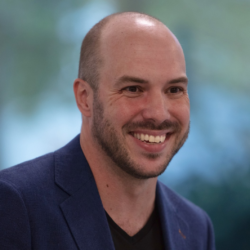
Quanser
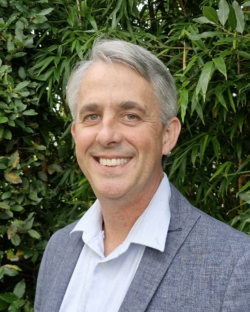
MathWorks

Teeside University

Engineering Professors’ Council
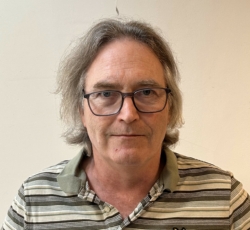
RB Systems
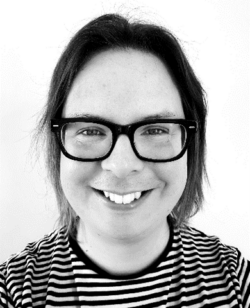
University of Bristol
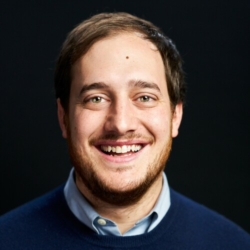
King’s College London
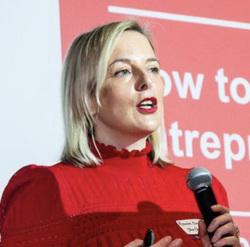
University College London
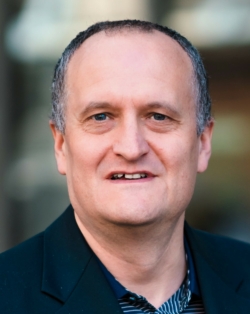
HancockHamlin / University of Huddersfield
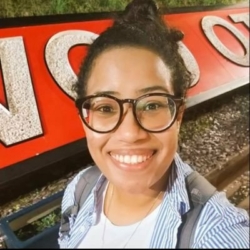
University of the West of England
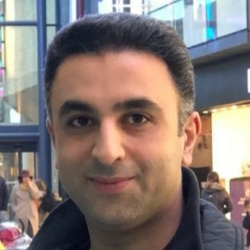
University College London
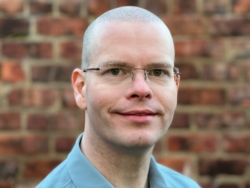
Edinburgh Systems / Heriot-Watt University / The University of Edinburgh

Cranfield University
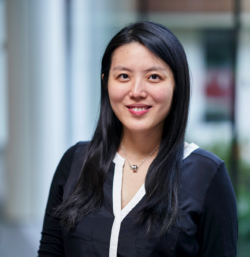
King’s College London
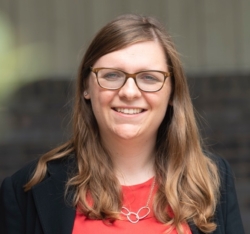
King’s College London
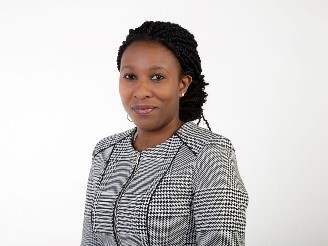
PA Consulting
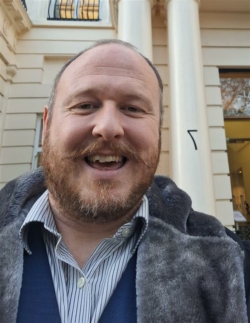
INCOSE UK / Thales

University of Leeds

Engineering Professors’ Council
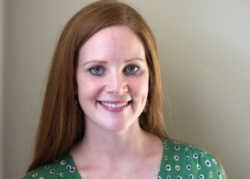
Colorado School of Mines
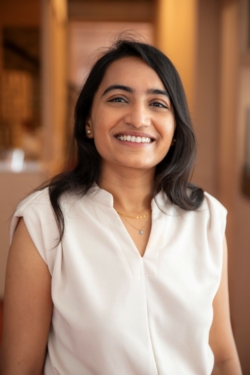
KLH Sustainability
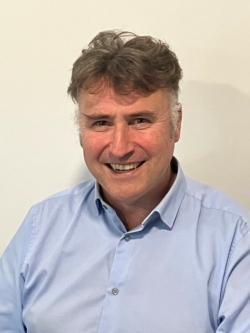
University of Liverpool / Wilde Consultants

University College London 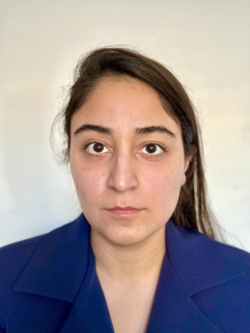
University of Kansas
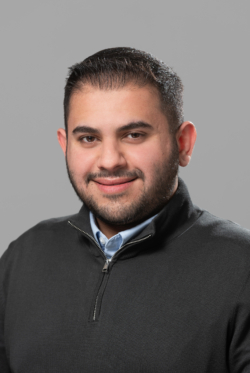
University College London
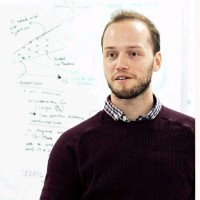
MathWorks
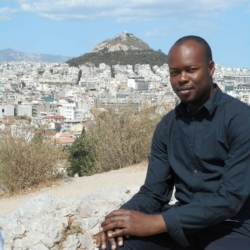
NMITE
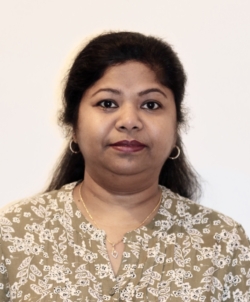
University College London
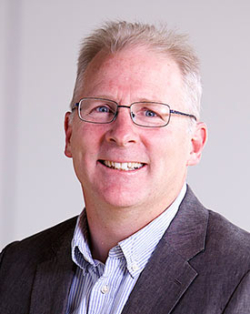
Lancaster University
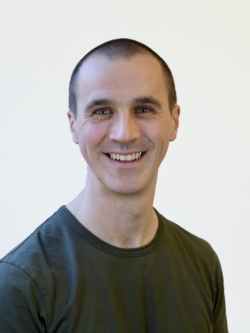
University of Glasgow
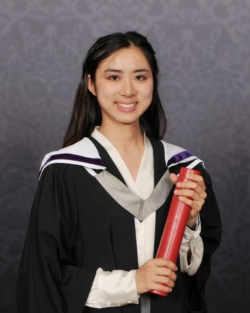
Cranfield University
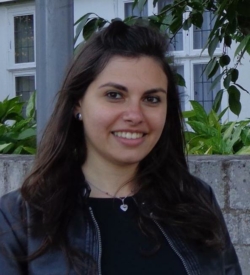
New Giza University

Nottingham Trent University
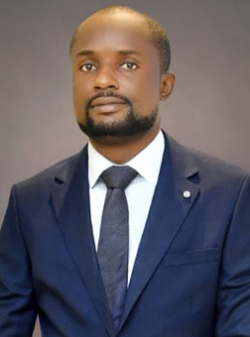
KatexPower
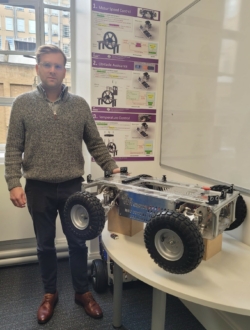
Harper Adams University
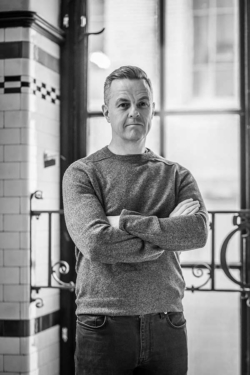
University of Strathclyde
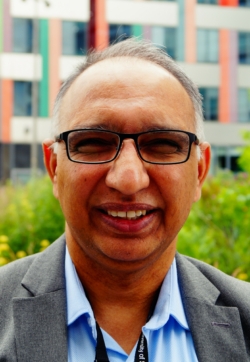
University of Sheffield
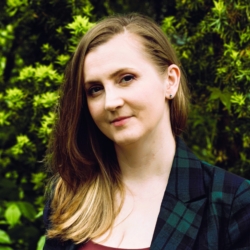
Warsaw University of Technology
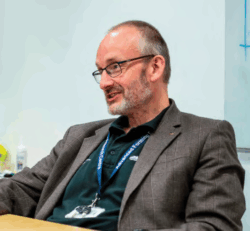
University of Strathclyde
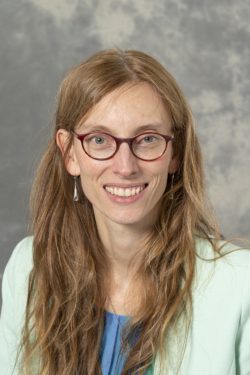
University College London

Royal Academy of Engineering

Bentley Systems
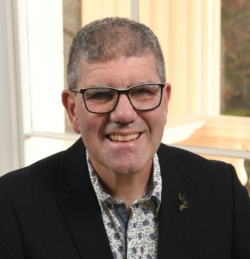
Oxa / Imperial College London / University of Birmingham

University of Bath
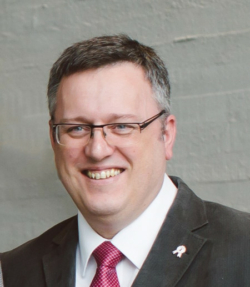
The Open University
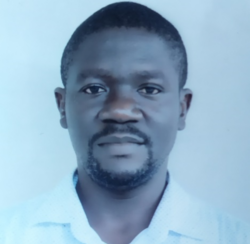
The New Model Institute for Technology and Engineering (NMITE)

University of Wolverhampton
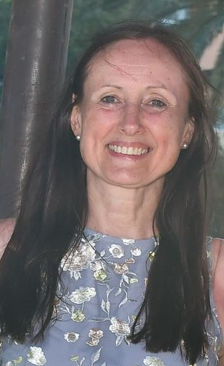
University College London
 The EPC’s Complex Systems Toolkit is supported by Quanser.
The EPC’s Complex Systems Toolkit is supported by Quanser.